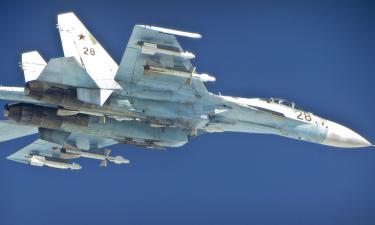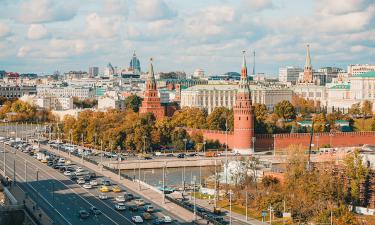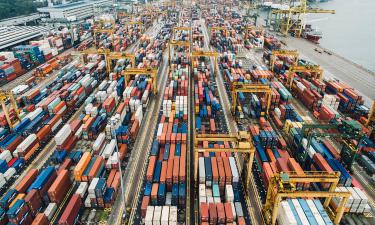Oil giants sell out assets
Lukoil and Yukos sell their stakes at branch companies
The board of the Russian oil giant Lukoil decided to sell 100 percent of its participation in the joint stock company Arcticneft (Arctic Oil). The decision was made within the scope of the strategic development program, which embraces the period until 2013. The program is meant to cut production costs, optimize assets and raise the investment profit. 
Lukoil sells extracted reserves of A, B, C1 categories – 7,454 tons of oil and 1,322 million cubic meters of gas (as of January 1st, 2004). Reserves also include C2 category - 4,297 tons of crude and 826 million cubic meters of gas, as well as the daily extraction of 220 tons in 2004 with a possibility to enlarge the extraction up to 300 tons in 2005.
Arcticneft has entered the ‘black list’ of companies, the reserves of which make up between two or four million tons of oil. Lukoil owns the enterprise through its branch companies Arkhangelskgeoldobycha (51%) and Lukoil-Arctic-Tanker (49%).
Arcticneft runs its activities in the Barents Sea. Last year it produced 82.5 thousand tons of oil, having gained the net profit of 2.87 million rubles. The company employs 602 people. The deposit, on which the company works, accumulates 7.5 million tons of reserves. The industrial infrastructure and production capacities of the company will also be put up for auction.
Before Lukoil announced plans to unload its assets in April, a little-known company Argo Plus evinced interest in Arcticneft. Argo Plus already owns four licenses to perform geological works on Kolguyev Island in the Barents Sea, where Arcticneft is based. “The volumes of crude extraction on the island are not large, but Arcticneft is a profitable enterprise,” the company’s general director Boris Aushev said a month ago. Aleksey Novoseltsev, the director of Argo Plus, confirmed at that time that the British company Proteus International (the main shareholder of Argo Plus) was considering an opportunity to acquire Arcticneft. “We will participate in the competition Lukoil will announce. However, we need to study the financial situation of the company and look into the geological information,” Novoseltsev said.
Investment specialists believe Arcticneft costs $10-15 million. “This is not the best stake of Lukoil, but this small enterprise has its own advantages. The extracted oil is exported by sea, it is not linked with the Transneft system. The raw material can wholly be shipped abroad,” analyst Valery Nesterov said.
It has recently become known that the oil giant Yukos and the Russian-British concern TNK-BP have completed the transaction to pass the Yukos-owned stake at Rospan International (56 percent) to TNK-BP. The deal is estimated at $357 million.
Rospan International owns licenses for deposits in Russia's Yamalo-Nenetsky autonomous region, the reserves of which total 950 billion cubic meters of gas and 180 million tons of gas condensate. Yukos controls 56 percent of the company’s shares. TNK-BP controls 44 percent. Pursuant to shareholders' agreement, a shareholder has a right to offer a partner to redeem shares. Stocks will be automatically written off to the benefit of the first shareholder, unless a counteroffer is made. TNK-BP has apparently used the right to be the first.
Yukos would acquire TNK-BP's share itself. The oil giant, though, experiences problems with cash, paying back-taxes. The Russian Tax Ministry accused Yukos of tax evasion with the help of internal offshores. On April 14th the ministry finished the tax inspection of the oil giant concerning tax payments and collections in 2000. According to the results of the inspection, the ministry ordered Yukos to pay over 99 billion rubles of back taxes. Twenty-two billion rubles have been collected from the company. Yukos is to pay 77.4 billion until the end of August.
As a result of the scandal with Yukos, bailiffs have arrested everything they could. They attempted to arrest Rospan's stocks too, but failed, as stocks had been registered with offshore companies. On August 10th bailiffs addressed to Deutsche Bank with a request to arrest the stocks. German bankers looked through the lists and concluded Yukos was not mentioned among the company’s owners. On August 11th court officers appeared in the bank again, asking to arrest 100 percent of Rospan's stocks (including TNK-BP's share, which has nothing to do with the government's tax claims). A source at Yukos told the Vedomosty newspaper the company was aware of the officers' actions: “It looks rather strange. We have informed them about the intention to spend the money on debt payments,” the anonymous source said.
The deal was completed despite the bailiffs' resistance. Yet, there was another company aspiring to Yukos's stocks at Rospan – Alpha Service. The company offered $450 million for the stake. In addition, Alpha Service intended to buy the stocks of two other companies from Yukos: Arcticgaz and Urengoy Ink.
Subscribe to Pravda.Ru Telegram channel, Facebook, RSS!





